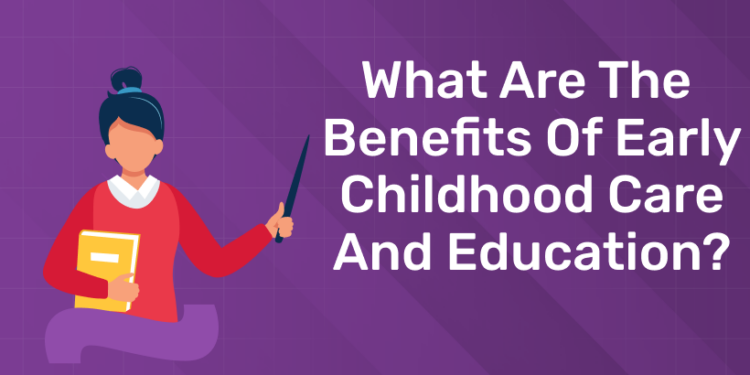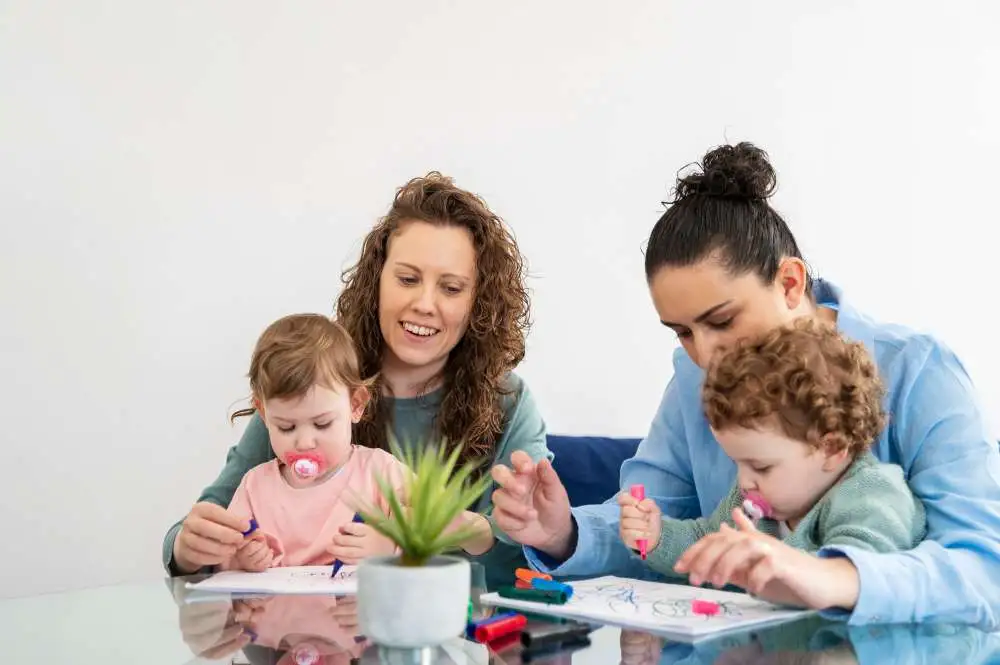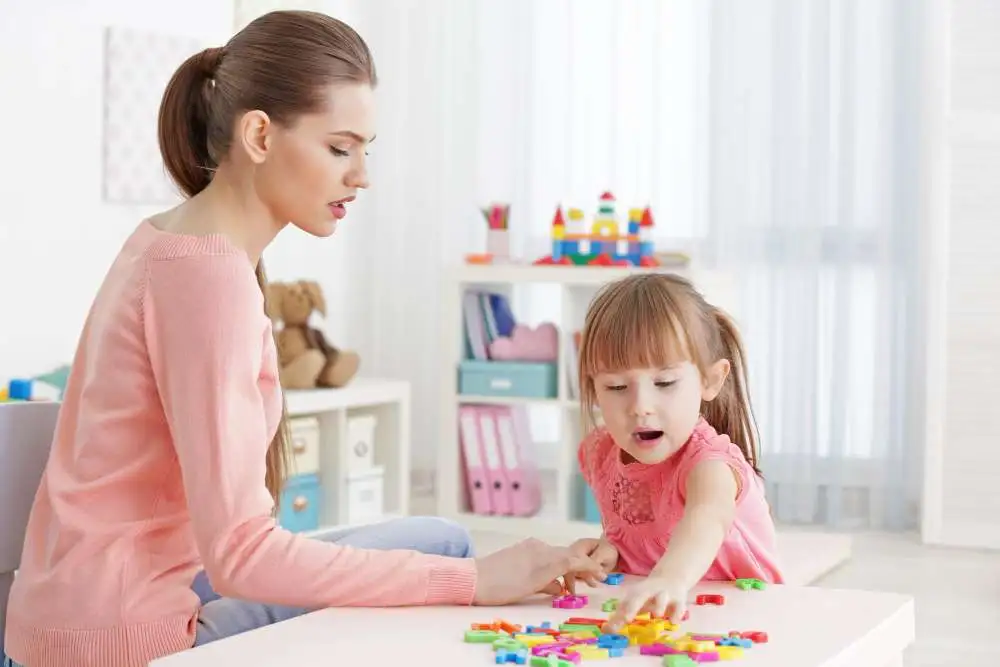Table of Contents
Early childhood is the most important phase of a person’s life. From birth to 8 years of age, children go through rapid physical, emotional, cognitive, and social development. The experiences they have during these formative years have a lasting impact on their personality, learning abilities, and future success.
For teachers and parents in India, understanding the benefits of Early Childhood Care and Education (ECCE) is crucial to give children the foundation for lifelong learning. ECCE is more than academic skills; it includes emotional well-being, social skills, creativity, and foundational literacy and numeracy.
This article will explore the multiple benefits of ECCE, practical applications for families and educators and how structured learning programs like Entri Montessori Course can equip teachers to give high quality early education.
Unlock your passion for education and shape young minds as a Montessori teacher!
Early Childhood Care and Education (ECCE)
ECCE is from birth to around 8 years old. This is the most critical period for brain development when children absorb knowledge like sponges and form core attitudes towards learning.
It includes not only preschool education but also emotional care, nutrition, and health – all that contribute to overall growth. A high-quality ECCE environment helps children learn to express emotions, cooperate, and explore the world with curiosity.
A structured ECCE programme provides:
- Cognitive stimulation through play and activities.
- Emotional support and safety.
- Guidance for language, motor and social development.
- Foundation for lifelong learning habits.
Benefits of Early Childhood Care and Education
1: What is the primary focus of the first plane of development in the Montessori method?
Early childhood education is one of the best ways to help your child develop their social, emotional and cognitive skills. This prepares them for school and life beyond that. Let us have a look at the various benefits that children have from early childhood care and education:
Improves Social Skills
Early childhood education exposes children to people outside their families. This helps children mingle with other kids and adults. They get to improve their listening, communication, and sharing skills. This helps in the social development of children.
When children learn to understand, express, and communicate, they are able to build strong relationships which help them in life. Strong social skills also help children perform better in school.
Being able to interact with others effortlessly boosts their self-esteem. This has a positive impact on their mental and overall health. These children learn to become more optimistic.
When children get to meet other people at a young age, they learn to make eye contact while speaking to them. This makes them feel more confident.
Development of Healthy Habits
Early childhood education program is not only about the academic and social development of a child; it is also about promoting physical health and well-being. The children are taught healthy habits through various methods and are also made to exercise regularly.
Learning personal hygiene at a young age benefits the children in the long run. Similarly, learning about personal health will encourage them to eat healthy. This habit will help them in their adulthood by learning to control their portions and balancing the nutrition.
Children also learn to become independent by doing simple chores like dressing up, putting on their shoes, clearing up the table, pouring water and juice etc.
Helps in Brain Development
Children have the ability to grasp easily at a very young age. In fact, the early years are extremely important as the brain development of a child is affected by factors like environment, social interaction etc.
Initially, children learn by observing and listening, and later on develop their language and cognitive skills. The vocabulary of a child often quadruples between the ages of two and four.
Children who get early education are equipped with social, cognitive and emotional skills by they time they start attending school. This benefits them to in the learning process.
Children learn by observing and this helps them develop skills like empathy. They mingle with others and learn to understand their feelings.
Helps in Making Friends
Most children of the age aged three to five enjoy playing with others their age. This encourages them to share, develop interpersonal skills and understand others feelings. These skills will help the children throughout their life.
Positive Impact on Society
Children who receive early education gain a lot of experience and learn to contribute to society. They focus more on serving the society and are less likely to fall prey to the evils and vices of society.
Becomes Independent
Participating in early childhood education means being away from the gamily at an early age. Even though the kids may find it difficult, being in an unfamiliar environment will help children discover their identity and build confidence.
Children attain self regulation skills that help them develop confidence and independence, thus allowing them to grow and understand who they are, and also to form friendships.
Unlock your passion for education and shape young minds as a Montessori teacher!
Get Certified & Start Your Montessori Career
Montessori Teacher Training Course by Entri App: Gain expert skills, earn certification, and kickstart your teaching career.
Join Now!Role of Parents in ECCE
Parents are the first teachers. Home environment plays a big role in complementing formal ECCE. Reading together, educational play and encouraging curiosity are powerful tools that shape learning habits.
Here are a few ways parents can support ECCE:
- Create a safe and stimulating home environment.
- Encourage storytelling and daily conversations.
- Involve children in daily tasks to build responsibility.
- Limit screen time and encourage outdoor play.
- Be patient and celebrate small milestones.
When parents and teachers work together, children get consistent guidance and encouragement that accelerates growth.
Why Montessori is Best for ECCE
Dr. Maria Montessori’s Montessori approach emphasizes hands-on learning and self-directed activity. It honors a child’s inherent inquisitiveness and personality.
In a Montessori classroom, children select activities that catch their attention, they learn when they’re ready and enjoy the thrill of exploration free of coercion. This approach cultivates intrinsic motivation–a passion for learning that extends well beyond childhood.
Fundamental Montessori principles that underpin ECCE:
- Discover learning not memorisation.
- Multi-age classes that promote peer learning.
- Materials that develop the senses and motor skills.
- Focus on autonomy and skepticism.
How Entri’s Montessori Course Moulds Tomorrow’s Teachers
Prospective preschool teachers are confronted with the difficulty of locating training that balances both theory and hands-on classroom strategies.
Entri Montessori Course fills that void. It offers an in-depth knowledge of child psychology, classroom management and Montessori pedagogy.
Highlights of Entri’s Montessori course:
- Learn at setup flexibile online working professional
- Expert mentorship from experienced educators.
- Real world teaching methods and lesson planning.
- Accreditation that unlocks teaching opportunities in India and overseas.
For educators and parents seeking to leave an imprint on impressionable minds, this course offers the groundwork to cultivate inspiring educational spaces that promote curiosity and self-assurance.
Get Certified & Start Your Montessori Career
Montessori Teacher Training Course by Entri App: Gain expert skills, earn certification, and kickstart your teaching career.
Join Now!Conclusion: Building a Better Future, One Child at a Time
ECCE is not just an academic stage; it is the foundation of life. It cultivates curiosity, empathy, discipline, and resilience, qualities every successful person needs. Are you a teacher shaping young minds or a parent guiding your child’s first steps? You are a giant. Create a nurturing, stimulating, and caring environment and unlock a child’s full potential.
If you are passionate about transforming young lives through education, consider enrolling in Entri’s Montessori Course. It’s your pathway to becoming a skilled early childhood educator capable of inspiring the next generation with compassion and creativity.
| Also Read | |
| 5 Ways Montessori Teacher Training Benefits Children | |
| Practical Life Tools Creation Project | |
| Montessori Pink Tower Making | |
| Knobbed Cylinders in Montessori | |
Get Certified & Start Your Montessori Career
Montessori Teacher Training Course by Entri App: Gain expert skills, earn certification, and kickstart your teaching career.
Join Now!Frequently Asked Questions
What is Early Childhood Care and Education (ECCE)?
ECCE refers to structured learning and care for children from birth to around eight years of age, focusing on their physical, emotional, cognitive, and social development.
Why is ECCE so important for a child’s growth?
The early years shape how a child learns and behaves. ECCE builds strong foundations for language, emotional regulation, and lifelong learning habits.
What are the major benefits of early childhood education?
It promotes social skills, independence, creativity, emotional intelligence, and academic readiness while nurturing a love for learning.
How does Montessori education fit into ECCE?
Montessori education encourages independence, curiosity, and hands-on learning, core values of ECCE that help children learn naturally through play and discovery.
What role do parents play in ECCE?
Parents are a child’s first teachers. Their involvement through reading, conversations, and play enhances the impact of formal early education.
What skills do teachers need for effective early childhood teaching?
Teachers must understand child psychology, use play-based methods, manage emotions, and foster creativity in the classroom.
How can ECCE improve future academic success?
Children who attend quality early education programs perform better academically, show improved focus, and have stronger problem-solving abilities.
What is the difference between daycare and early education?
Daycare primarily provides supervision and safety, while ECCE includes structured learning activities aimed at cognitive and emotional growth.
Can Montessori training help teachers build a career in ECCE?
Yes. A Montessori certification, such as the one from Entri, opens doors to preschool and early education jobs globally.
How does Entri’s Montessori Course help aspiring teachers?
Entri’s Montessori Course combines theory with real-world teaching techniques, helping educators create nurturing, engaging, and child-centric learning spaces.













